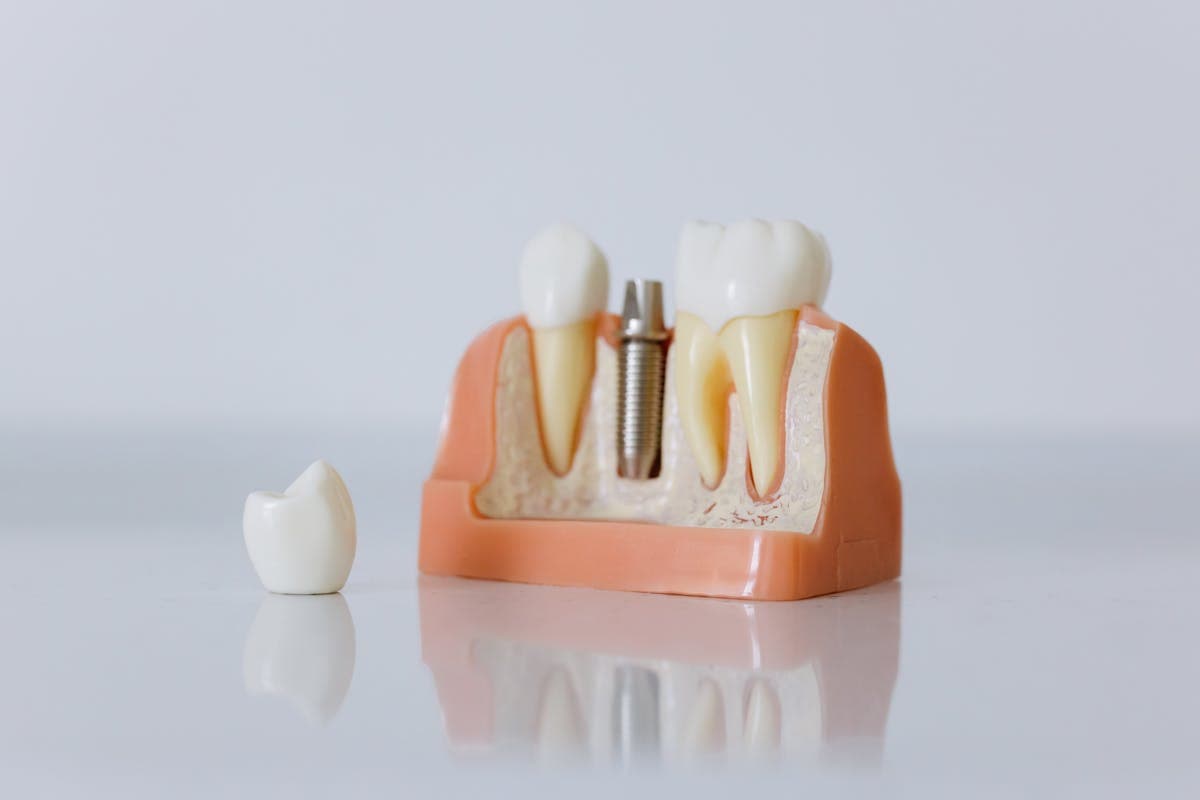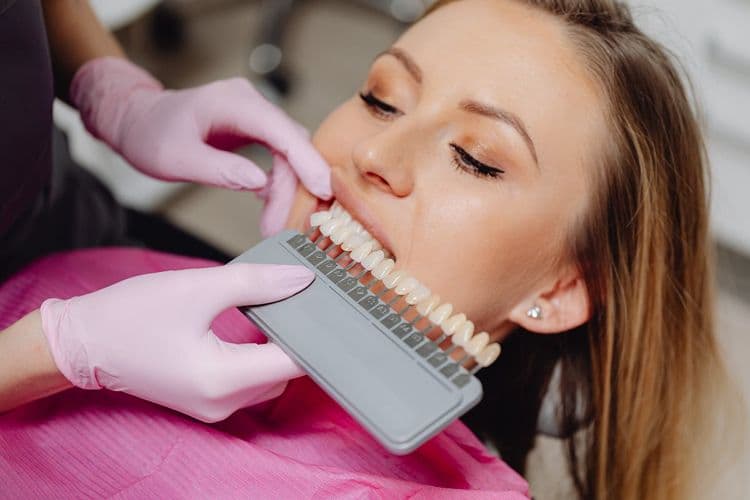The field of dentistry offers a myriad of solutions for missing teeth, one of the most notable being teeth covers, or more formally, dental bridges and crowns. These are not just cosmetic fixes, but also functional ones that can dramatically improve a person’s quality of life. Manufactured from high-quality materials such as porcelain or metal, these dental aids can seamlessly blend with the natural teeth, restoring a person’s smile and confidence. However, the question that arises is, how essential is timely intervention and what potential implications can delay have on overall oral health?
Understanding Teeth Covers
While many may be familiar with the term ‘teeth covers’, a thorough understanding of what they actually are, how they work, and their purpose, is often lacking. Teeth covers, also known as dental crowns or caps, are prosthetic devices cemented onto existing teeth or implants. They are designed to cover a damaged tooth or replace a missing one, restoring its size, shape, strength, and improving appearance. The teeth covers benefits are twofold: they provide aesthetic enhancement and functional improvement. When choosing materials for teeth covers, several options exist including metal, porcelain fused to metal, resin, or ceramics. The selection depends on several factors such as the tooth’s location, patient’s preference, cost, and the dentist’s recommendation.
The Importance of Teeth Replacement
Recognizing the importance of teeth replacement is crucial for overall oral health and well-being. When a tooth is missing, it not only affects the aesthetic appeal of one’s smile but can lead to a host of oral health issues. The surrounding teeth may shift, causing bite misalignment that can result in jaw pain and difficulty chewing. Additionally, a missing tooth can lead to bone loss in the jaw over time.
Replacement teeth provide a solution to these issues, restoring function and aesthetics. The aesthetic benefits of a full set of teeth can greatly enhance one’s confidence and quality of life. Consequently, it is essential to address missing teeth promptly with appropriate measures for the sake of one’s oral health and overall well-being.
Different Types of Teeth Covers
Moving forward from the significance of teeth replacement, let’s explore the various types of teeth covers available. Among the popular options are temporary crowns and dental bridges. Temporary crowns, made from acrylic or stainless steel, are used to protect a damaged tooth while a permanent crown is being made. They provide an immediate, albeit short-term, solution for missing or damaged teeth. On the other hand, dental bridges are more permanent solutions. These devices, typically made from porcelain fused to metal or ceramics, are used to ‘bridge’ the gap created by one or more missing teeth. They are anchored to the adjacent healthy teeth, providing a sturdy and natural-looking replacement. Both options offer unique benefits, and the choice largely depends on the patient’s specific dental needs and preferences.

Process of Getting Teeth Covers
Beginning the journey to get teeth covers involves several vital steps. The first step is the consultation process, where a dental professional assesses your oral health and discusses the best options for you. This is critical as it sets the foundation for your treatment plan. The dentist will take into consideration your oral health, lifestyle, and personal preferences.
After the consultation, the fitting procedure begins. This involves taking precise impressions of your mouth to guarantee the teeth covers fit correctly. The covers are then custom-made in a lab to match your natural teeth. Once ready, they’re carefully adjusted and cemented into place for a natural and comfortable fit. This extensive process guarantees a successful result, restoring both function and aesthetics to your smile.
Cost and Insurance Coverage
While it’s essential to weigh the aesthetic and health benefits of teeth covers, one must also account for the financial aspect of this dental procedure. To accurately budget for this investment, a thorough cost analysis is necessary.
- Cost of Teeth Covers: Costs vary considerably based on the materials used and the complexity of the procedure. It can range from a few hundred to several thousand dollars.
- Insurance Options: Some dental insurance plans partially cover teeth covers, but it varies considerably from one policy to another. It’s advisable to consult your insurance provider for detailed coverage information.
- Out-of-Pocket Expenses: Uninsured patients or those whose insurance doesn’t fully cover the procedure will have out-of-pocket expenses that should be factored into the budget.
Understanding these cost elements will help you better prepare financially for this procedure.
Maintenance of Teeth Covers
After carefully considering the financial implications of teeth covers, it’s equally important to ponder on their maintenance aspect to guarantee their longevity and effectiveness. Proper care of teeth covers involves specific cleaning techniques to prevent bacterial build-up, which can lead to oral diseases. Regular brushing, flossing, and professional cleanings are essential to maintain oral hygiene and the integrity of the covers. The material durability of teeth covers is largely dependent on the care they receive. Abrasive cleaning materials should be avoided as they can damage the surface. Instead, non-abrasive fluoride toothpaste is recommended. In addition to daily care, regular dental check-ups are vital for early detection of potential problems and ensuring the covers fit properly. With proper maintenance, teeth covers can provide a durable and effective solution for missing teeth.
Potential Risks and Complications
Occasionally, despite meticulous care and maintenance, teeth covers may present certain risks and complications. While they are generally safe, there are a few potential problems that patients should be aware of:
- Infection Risks: Teeth covers, especially removable ones, can harbor bacteria if not properly cleaned, increasing the risk of oral infections.
- Allergic Reactions: Some individuals may experience allergic reactions to the materials used in the making of teeth covers. Symptoms can range from mild discomfort to severe inflammation.
- Discomfort and Irritation: Teeth covers can sometimes cause discomfort or irritation to the surrounding gums and oral tissues, especially when newly fitted or adjusted.
It is essential to consult with your dentist about these potential risks and complications to guarantee peak dental health.
Success Stories and Testimonials
The power of personal testimonials cannot be overstated when it comes to teeth covers for missing teeth. Success stories often provide insights into patient experiences that are both valuable and enlightening. For instance, a 45-year-old patient named Mary shared her transformative journey. After years of discomfort and embarrassment due to her missing teeth, Mary opted for teeth covers. Post procedure, she expressed immense satisfaction, reporting a dramatic increase in confidence and improvement in her quality of life. Similarly, John, a 58-year-old, echoed these sentiments, stating that the teeth covers were a perfect fit, comfortable, and indistinguishable from natural teeth. These testimonials underscore the potential positive impacts of teeth covers, offering hope and affirmation to prospective patients.
Frequently Asked Questions
Can Teeth Covers Be Used While Eating or Drinking?
Yes, teeth covers can be utilized during eating and drinking. However, maintaining good dental hygiene is essential to prevent food particles from getting trapped. Also, certain eating habits may need to be adjusted for comfort.
How Comfortable Are Teeth Covers for Daily Use?
Comfort levels for daily use largely depend on fit factors and individual user experiences. Properly fitted covers should not cause discomfort, and many users report acclimating to their presence quickly, enhancing overall daily usability.
Do Teeth Covers Affect Speech in Any Way?
Yes, teeth covers may initially impact speech clarity, potentially causing slight pronunciation issues. However, with time and practice, most users adjust and regain their normal speech patterns. It varies based on individual adaptability and type of teeth cover.
Are Teeth Covers Suitable for People With Sensitive Gums?
Yes, teeth covers can be suitable for individuals with sensitive gums. They may even aid in sensitivity reduction. However, it’s essential to monitor gum health regularly, as improper use can potentially exacerbate sensitivity.
Is There a Specific Age Requirement to Use Teeth Covers?
No specific age limitations exist for the use of dental prosthetics. However, it is essential to evaluate the overall dental health and gum maturity of the individual before proceeding with any dental enhancement.


